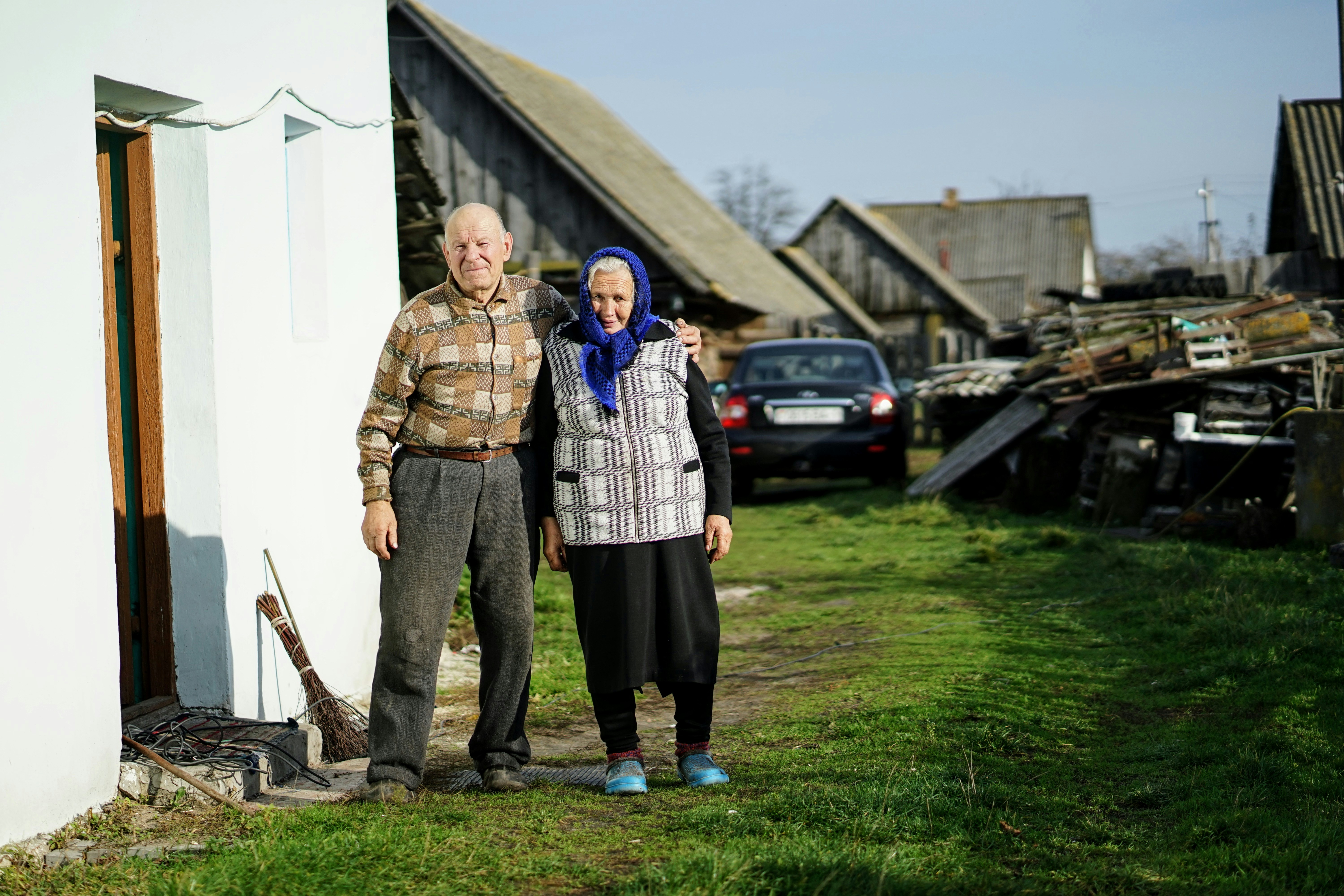Winter Volunteer Opportunities for Seniors in Canada

Winter in Canada can be long, cold, and isolating, especially for seniors. But rather than letting the season slow you down, winter offers a unique opportunity to give back, stay active, and stay socially connected. Volunteering during the winter months isn’t just about helping others—it can also enhance your own quality of life.
Why you should read this guide:
- Discover meaningful ways to give back: Learn about volunteer opportunities specifically designed for seniors that match your skills, interests, and availability.
- Stay active and engaged during winter: Volunteering helps combat winter blues, loneliness, and seasonal isolation.
- Find safe, accessible options: This guide highlights indoor, outdoor, and even virtual volunteer roles tailored to seniors’ safety and comfort in cold weather.
- Connect with your community: Winter volunteering fosters social connections, helps build new friendships, and strengthens your local community.
- Make a real difference: From supporting food banks to mentoring youth, your time and experience can have a meaningful impact during a season when help is often most needed.
By reading this guide, you’ll gain a clear roadmap to explore winter volunteer opportunities in your area and understand how your contributions can make the season brighter for both you and those you help.
Winter Volunteering
Volunteering in winter comes with unique challenges and opportunities, especially for seniors. Understanding these can help you have a safe, enjoyable, and meaningful experience.
1 Common Challenges
- Cold weather and slippery conditions: Walking or commuting to volunteer sites can be risky. Seniors should wear proper footwear, layered clothing, and consider indoor roles if outdoor activity is difficult.
- Shorter daylight hours: Winter in Canada means limited sunlight, which can affect travel safety and mood. Scheduling volunteer hours during daylight is safer.
- Health considerations: Seniors with mobility issues, arthritis, or heart conditions should choose activities that match their physical capacity.
2 Indoor vs Outdoor Volunteer Roles
- Indoor opportunities: Food banks, shelters, tutoring, administrative work, phone check-ins for isolated seniors, or virtual mentoring. These reduce exposure to harsh weather.
- Outdoor opportunities: Winter festivals, community clean-ups, assisting at outdoor markets, or animal shelter care. Requires warm clothing and careful planning.
3 Time Commitments
- Short-term roles: Seasonal programs, one-off events, holiday meal services, or snow-shoveling for seniors in need.
- Long-term roles: Ongoing programs like mentoring youth, weekly companionship visits, or supporting local charities. These can offer deeper social connections but require a consistent schedule.
4 Matching Skills and Interests
- Seniors should consider what they enjoy and are skilled at. Examples:
- Cooking → volunteering in community kitchens
- Teaching → tutoring or mentoring
- Crafting → helping with winter festivals or DIY projects for charities
- Cooking → volunteering in community kitchens
5 Staying Safe and Comfortable
- Dress in layers and wear insulated footwear.
- Carry a fully charged phone and let someone know your schedule.
- Take regular breaks indoors if volunteering outside.
- Stay hydrated, even in cold weather—it’s easy to forget in winter.
Popular Winter Volunteer Opportunities in Canada
Winter can be challenging, especially for seniors, but it also brings unique opportunities to help communities in need. Here are some popular ways seniors can volunteer during the colder months:
1. Helping at Local Food Banks and Shelters
- What it involves: Sorting and distributing food, packing grocery hampers, helping with deliveries.
- Why it’s great for seniors: Indoor work keeps you warm, provides a sense of purpose, and helps feed vulnerable populations.
- Example organizations: Second Harvest (national), Daily Bread Food Bank (Toronto), Moisson Montréal (Quebec).
2. Assisting in Community Soup Kitchens
- What it involves: Preparing meals, serving food, cleaning up, or organizing donations.
- Why it’s great for seniors: Offers social interaction, opportunities to build friendships, and provides hands-on support to those in need.
- Example organizations: The Salvation Army, local church-run soup kitchens.
3. Visiting Seniors and Companionship Programs
- What it involves: Calling, video chatting, or visiting isolated seniors, reading, playing games, or helping with errands.
- Why it’s great for seniors: Builds meaningful connections and helps reduce loneliness for both volunteers and recipients.
- Example organizations: Friendly Visiting Programs (across Canada), local seniors’ centers.
4. Tutoring or Mentoring Youth
- What it involves: Assisting students with homework, providing mentorship, teaching life skills, or volunteering in libraries and schools.
- Why it’s great for seniors: Keeps your mind active, allows sharing of life experience, and strengthens community ties.
- Example organizations: Big Brothers Big Sisters, YMCA programs, community literacy programs.
5. Participating in Community Winter Festivals or Events
- What it involves: Helping with setup, registration, guiding visitors, or running activities.
- Why it’s great for seniors: Fun and festive work that encourages staying active outdoors (with proper winter gear).
- Example events: Winterlude (Ottawa), Toronto Light Festival, local Christmas or winter markets.
6. Supporting Animal Shelters During Harsh Winter Months
- What it involves: Feeding, walking, grooming animals, or assisting with adoption events.
- Why it’s great for seniors: Provides emotional satisfaction and a chance to stay active.
- Example organizations: Toronto Humane Society, SPCA chapters across Canada.
7. Fundraising and Advocacy Campaigns
- What it involves: Helping organize charity events, calling donors, distributing flyers, or managing online campaigns.
- Why it’s great for seniors: Can often be done from home, flexible hours, and supports meaningful causes.
- Example organizations: Heart & Stroke Foundation, Canadian Cancer Society, United Way.
Top 5 Winter Volunteer Picks for Seniors in Canada
1. Visiting Seniors & Companionship Programs
- Why it’s ideal: Can be done from home or virtually, reducing exposure to harsh winter weather.
- Benefits: Reduces loneliness for both the volunteer and the senior, provides meaningful social connection.
- How to start: Check local seniors’ centers or organizations like Friendly Visiting Programs.
2. Fundraising & Advocacy Campaigns
- Why it’s ideal: Flexible hours and mostly indoor/remote work.
- Benefits: Supports meaningful causes without physical strain.
- How to start: Look into Heart & Stroke Foundation, United Way, or local charity campaigns.
3. Tutoring or Mentoring Youth
- Why it’s ideal: Indoor activity, can also be virtual.
- Benefits: Keeps your mind sharp, allows you to share life experience, and helps children or teens succeed academically.
- How to start: Volunteer with Big Brothers Big Sisters, libraries, or online tutoring programs.
4. Local Food Banks & Shelters
- Why it’s ideal: Mostly indoor work, warm environment, and steady volunteer demand in winter.
- Benefits: Provides tangible help to vulnerable community members and builds social connections.
- How to start: Contact Second Harvest, Daily Bread Food Bank, or local community shelters.
5. Animal Shelters
- Why it’s ideal: Indoor tasks available with optional outdoor activity for walks, depending on weather.
- Benefits: Emotional satisfaction, mild physical activity, and companionship with animals.
- How to start: Reach out to local SPCA chapters or humane societies.
Region-Specific Opportunities
Canada is vast, and winter volunteer opportunities vary depending on your province, city, and whether you’re in an urban or rural area. Here’s a regional guide for seniors:
Ontario
- Toronto:
- Food banks (e.g., Daily Bread Food Bank) and winter shelter programs often need volunteers to help serve meals, sort donations, and assist with community events.
- Hospitals and retirement homes sometimes seek volunteers to provide companionship or assist in activity programs.
- Food banks (e.g., Daily Bread Food Bank) and winter shelter programs often need volunteers to help serve meals, sort donations, and assist with community events.
- Ottawa:
- Seniors can join local library tutoring programs, mentor youth, or help with winter festivals.
- Community centers often organize indoor activities, craft sessions, or social events that rely on volunteers.
- Seniors can join local library tutoring programs, mentor youth, or help with winter festivals.
- Hamilton and surrounding areas:
- Volunteer at community kitchens, winter coat drives, and holiday meal programs.
- Volunteer at community kitchens, winter coat drives, and holiday meal programs.
British Columbia
- Vancouver:
- Local food banks and shelters often need help during the cold months.
- Animal shelters may require extra hands to care for pets during harsh winter conditions.
- Local food banks and shelters often need help during the cold months.
- Victoria:
- Seniors can assist with museum tours, community arts programs, or literacy tutoring.
- Seniors can assist with museum tours, community arts programs, or literacy tutoring.
- Kelowna:
- Winter sports organizations or community ski programs may need volunteers for events or safety monitoring.
- Winter sports organizations or community ski programs may need volunteers for events or safety monitoring.
Quebec
- Montreal:
- Volunteer with programs that support the homeless, including meal preparation and clothing drives.
- Libraries and cultural centers seek seniors for tutoring, reading programs, and event support.
- Volunteer with programs that support the homeless, including meal preparation and clothing drives.
- Quebec City:
- Seasonal festivals in winter, like the Winter Carnival, often need volunteers for logistics, ticketing, and guiding visitors.
- Seasonal festivals in winter, like the Winter Carnival, often need volunteers for logistics, ticketing, and guiding visitors.
Prairies (Alberta, Saskatchewan, Manitoba)
- Alberta (Calgary & Edmonton):
- Food and clothing banks, winter shelters, and hospital volunteer programs.
- Animal rescue organizations require winter assistance for pets.
- Food and clothing banks, winter shelters, and hospital volunteer programs.
- Saskatchewan & Manitoba:
- Community centers may organize indoor activities or tutoring programs for children during winter.
- Volunteer at local museums, libraries, or historical societies.
- Community centers may organize indoor activities or tutoring programs for children during winter.
Atlantic Canada
- Nova Scotia & New Brunswick:
- Seniors can volunteer at local food pantries, winter festivals, and community support programs.
- Libraries and schools often need mentors or reading companions.
- Seniors can volunteer at local food pantries, winter festivals, and community support programs.
- Newfoundland & Labrador:
- Winter cleanup projects, local food drives, and indoor activity programs for seniors or children.
- Winter cleanup projects, local food drives, and indoor activity programs for seniors or children.
Northern Territories
- Yukon, Nunavut, Northwest Territories:
- Opportunities are more community-focused due to smaller populations.
- Seniors can assist with local schools, community events, elder support programs, and cultural preservation projects.
- Remote or virtual volunteering can be especially valuable here during harsh winter months.
- Opportunities are more community-focused due to smaller populations.
Tip: Winter volunteering may require flexibility due to weather conditions, so always check local organizations for updated schedules and indoor opportunities.
Virtual and Remote Volunteering Options
Winter can be harsh, especially in northern parts of Canada, making remote volunteering a safe and practical option for seniors. Many organizations now offer online or phone-based opportunities, letting seniors contribute without leaving home.
Examples of virtual volunteering:
- Online tutoring or mentoring: Help students with reading, math, or language skills via video calls.
- Phone check-ins: Call isolated seniors to offer companionship, conversation, and support.
- Virtual fundraising: Assist charities in organizing online events, campaigns, or social media awareness drives.
- Digital admin support: Help nonprofits with tasks like data entry, email campaigns, or research from home.
Benefits:
- Safe from cold weather or mobility challenges
- Flexible schedules
- Opportunity to connect with people across Canada
Tips:
- Ensure you have basic internet skills or get support from local community centers
- Set a regular schedule to stay consistent and engaged
How to Get Started
Getting started as a winter volunteer is easier than you might think. Here’s a simple step-by-step approach:
- Identify your interests and skills: Do you enjoy helping people, animals, children, or organizing events? Knowing your strengths helps find the right match.
- Search for local organizations: Check your city’s volunteer center, library boards, community centers, or websites like Volunteer Canada.
- Consider virtual opportunities: Many programs allow seniors to contribute online perfect for winter months.
- Contact organizations: Reach out via phone or email to learn about requirements, schedules, and available roles.
- Complete registration: Some organizations may require a background check, training, or orientation.
- Start small: Begin with a few hours per week and increase as you feel comfortable.
Pro tip: Join local senior groups or online forums they often share volunteer openings and seasonal opportunities.
Tips for a Rewarding Winter Volunteering Experience
Winter volunteering can be highly rewarding if you plan carefully. Here’s how to make the most of it:
- Dress appropriately: Layer clothing, wear warm boots, and bring gloves if volunteering outdoors.
- Stay safe: Avoid slippery sidewalks, icy paths, or extreme weather conditions.
- Balance your time: Don’t overcommit ensure volunteering fits with your personal schedule.
- Take care of your health: Stay hydrated, eat well, and rest when needed.
- Build connections: Introduce yourself to other volunteers, staff, and participants—it enriches your experience and combats winter loneliness.
- Celebrate achievements: Recognize your contributions, no matter how small—they make a difference.
Extra tip: Keep a journal or take photos (with permission) of your volunteer activities. Reflecting on your contributions can boost morale and provide inspiration to others.
Additional Resources
Winter volunteering for seniors can be easier and more rewarding when you know where to look. Here’s a guide to useful resources across Canada:
1 National Volunteer Databases
These websites help seniors find volunteer opportunities anywhere in Canada, including winter-specific roles:
- Volunteer Canada – Offers a searchable national directory of volunteer opportunities by location and interest. Ideal for seniors looking for local or seasonal roles.
https://volunteer.ca/ - GetInvolved.ca – A comprehensive database for Canadian volunteer opportunities. Seniors can filter roles by cause, location, and time commitment.
https://www.getinvolved.ca/ - CanadaHelps – While primarily for donations, many organizations post volunteer opportunities here, especially for seasonal campaigns.
https://www.canadahelps.org/en/
2 Local Senior Centers and Community Organizations
Many local organizations have dedicated volunteer programs tailored to seniors, often focusing on indoor activities during winter:
- Community centres and senior centres – Check local recreation or municipal websites for seasonal volunteer opportunities.
- Libraries and literacy programs – Seniors can volunteer for tutoring or reading programs.
- Religious institutions and places of worship – Often host winter programs for food drives, companionship visits, and holiday events.
3 Winter-Specific Volunteer Programs
Certain programs are designed specifically for winter months and seasonal needs:
- Food banks and shelters winter campaigns – Many shelters need extra volunteers during the cold months.
- Holiday and seasonal events – Community Christmas or winter festivals often seek volunteers for setup, management, or welcoming attendees.
- “Adopt a Senior” or companionship programs – Provide friendship and support to isolated seniors during winter.
4 Online & Virtual Volunteering Resources
For seniors who prefer indoor or remote volunteering:
- Virtual tutoring and mentorship programs – e.g., Big Brothers Big Sisters Online Mentoring.
- Telephone reassurance programs – Seniors volunteer to call isolated individuals during winter months.
- Online fundraising campaigns – Many charities seek volunteers to help run digital campaigns.
5 How to Use These Resources Effectively
- Start early: Winter roles can fill quickly, especially during the holiday season.
- Check for age-friendly programs: Some volunteer roles are designed specifically for seniors.
- Match skills to needs: Choose activities that suit your interests, mobility, and comfort level in cold weather.
- Stay updated: Subscribe to newsletters from Volunteer Canada, GetInvolved.ca, or local senior centers for new winter volunteer postings.



